On Friday, the US Ambassador to the United Nations, Samantha Power, gave a surreal performance that seemed a cross between the start of a 12-step program and primal scream therapy. Speaking at the left wing Center for American Progress, Power said:
We worked with the UN to create a group of inspectors and then worked for more than six months to get them access to the country, on the logic that perhaps the presence of an investigative team in the country might deter future attacks. Or if not, at a minimum, we thought perhaps a shared evidentiary base could convince Russia or Iran – itself a victim of Saddam Hussein’s monstrous chemical weapons attacks in 1987-1988 – to cast loose a regime that was gassing its people.
Why anyone would believe that Iran would kick to the curb its longtime ally, the Assad regime, and by extension its client Lebanese Hezbollah because a thousand or so Arabs were gassed –given the Iran’d own record of slaughtering opponents — because the Iranians were gassed thirty years ago is anyone’s guess. Similarly, it is more than a little unclear on how an UN team visiting Syria for a few days in August 2013 would serve to deter a future attack. Why would any sane person believe Vladimir Putin would toss an ally under the bus in order to make Barack Obama look good?
This imbecility has its roots in the rather precious theory of “soft power” flogged about academic circles by a guy named Joseph Nye. In his book Soft Power: The Means to Success in World Politics he describes soft power:
“A country may obtain the outcomes it wants in world politics because other countries – admiring its values, emulating its example, aspiring to its level of prosperity and openness – want to follow it. In this sense, it is also important to set the agenda and attract others in world politics, and not only to force them to change by threatening military force or economic sanctions. This soft power – getting others to want the outcomes that you want – co-opts people rather than coerces them.”
Samantha Power is a devotee of soft power. In a 2007 interview she had this to say:
I think that most of us, in a knee-jerk way, tend to conflate power with ‘hard power’ – with economic and military power. At the Kennedy School, Joe Nye gave us the concept of ‘soft power’ as another component of power. Building on Nye’s concept, we would be wise in the 21st century to measure our power by our influence. Influence is best measured not only by military hardware and GDP, but also by other people’s perceptions that we, the United States, are using our power legitimately. That belief – that we are acting in the interests of the global commons and in accordance with the rule of law – is what the military would call a ‘force multiplier.’ It enhances the U.S. ability to get what it wants from other countries and other players.
We can only presume this was intended to show the world how much smarter this administration is than that of the evil George Bush. It doesn’t make sense in any world with a blue sky but apparently this is what passes for geopolitics with the latte-sucking rubes in this administration.
What is terrifying is that this “strategy” is what has driven American policy towards Syria for a while.
The weapons inspectors arrived in Syria on August 18, a mere three days before the widely publicized chemical attack on Ghouta which is reported to have killed between 355 and 1729 people. This indicates the Obama administration has been working this strategy for months. It probably dates to Obama’s infamous “red line” blunder on August 20, 2012:
“We have communicated in no uncertain terms with every player in the region that that’s a red line for us and that there would be enormous consequences if we start seeing movement on the chemical weapons front or the use of chemical weapons,” he said. “That would change my calculations significantly.”
In retrospect, it is obvious that the administration was concerned about the use of chemical weapons as on August 11, 2012, Hillary Clinton said at a joint press conference with Turkish Foreign Minister Ahmet Davutoğlu:
And both the minister and I saw eye to eye on the many tasks that are ahead of us, and the kinds of contingencies that we have to plan for, including the one you mentioned in the horrible event that chemical weapons were used. And everyone has made it clear to the Syrian regime that is a red line for the world, what would that mean in terms of response and humanitarian and medical emergency assistance, and of course, what needs to be done to secure those stocks from every being used, or from falling into the wrong hands.
If we, however, take these three statements, Power, Obama, and Clinton, together with a timeline of events we will see an administration that has been hung out to dry by its own craftiness and its devotion to a rather silly geopolitical theory.
Chemical Weapons and Syria
Syria has never declared that it owns chemical weapons and has not signed the Chemical Weapons Convention:
Western intelligence has long believed that Syria possessed stocks of chemical agents and was aided in developing and acquiring these agents by… Iran. The same Iran which would be so appalled at the use of chemical weapons that they would ally with the Great Satan to ensure Syria forswore these weapons:
Since embarking on a CW program in the 1970’s, Syria has obtained both chemical agents and CW-capable missiles from foreign suppliers. [3] Currently, Syria’s ability to produce CW agents and delivery systems appears to remain heavily dependent on foreign support for materials and expertise. Since 2005, Jane’s Defense has reported on alleged Iranian assistance to Syria in upgrading and enhancing its CW production infrastructure.
Early in the rebellion against Assad, at a point when he was looking particularly vulnerable, the administration was concerned that if Assad fell his chemical munitions could fall into more hostile hands than Assad’s.
Foreshadowing
The chemical attack in the center of today’s attention did not happen in a vacuum. There were signs that chemical weapons would probably be used:
Between late November and early December 2012, Western intelligence agencies obtained clear evidence that Syrian government units were preparing chemical weapons for potential use. At one base, soldiers were observed to be mixing precursor chemicals and taking other steps to make the chemical weapons battlefield ready. Surveillance photos further confirmed another army unit loading chemical weapons onto special military transport vehicles. [50] These actions prompted President Obama to warn Syria again on 3 December 2012 that “the use of chemical weapons is and would be totally unacceptable… [and] there will be consequences and you will be held accountable.” [51] Shortly afterwards Syrian forces appeared to have ceased chemical weapons preparations, and U.S. Secretary of Defense Leon Panetta attributed the halt of Syrian chemical weapons activities to President Obama’s warning. [52]
Escalation
Around March 19, 2013, the first reports of the use of chemical weapons, near Aleppo, appeared in the west. Both sides point fingers and as a result the United Nations commissioned a team to visit Syria and investigate at Syria’s request. As other allegations emerged and the UN team asked to extend its investigation, the Assad regime balked and refused entry.
By June 13, the Obama regime was alleging that Syrian had used chemical weapons:
The White House said on Thursday that the Assad regime had used chemical weapons “on a small scale against the opposition multiple times in the last year.” The assessment came after American and European government analysts examined physiological evidence and other intelligence indicating that Syrian troops had used sarin gas against the opposition. The announcement said that American intelligence officials now believed that 100 to 150 people had died from the attacks, but officials cautioned that the number could be higher.
Miscalculation?
At long last the UN weapons inspection team arrived in Syria on August 18:
Led by Swedish scientist Ake Sellstrom, the team had been on standby since early April to visit Syria but the mission was held up for months by negotiations over the access Damascus would grant them.
Syrian officials originally insisted they should only investigate claims of chemical weapons use in Khan al-Assal, near the northern city of Aleppo, but the team has been urged to look into at least a dozen other incidents, mainly around Damascus, Homs and the northern town of Saraqeb.
The experts now plan to visit Khan al-Assal and two other sites which they have not yet specified.
According to some reports, the Obama administration had successfully deterred Assad from using chemical weapons on a large scale. In the case of the attack at Ghouta, the administration had at least three days’ notice that the attacks were going to take place but took no action:
American intelligence had evidence that preparations were underway for a chemical weapons attack as early as three days before the strike that targeted Damascus suburbs, killing 1,429 last Wednesday, senior administration officials revealed on Friday.
…
US officials acknowledged that they had been surprised by the large and “indiscriminate” scale of last week’s attack, but said that they had signals and human intelligence as early as the Sunday before the assault. In contradiction to reports in recent days, another official who spoke on condition of anonymity said that there was “no indication” that the scale or targets of the attack were a mistake.
The official also said that throughout the course of the past year, the United States had responded to earlier attempts of chemical weapons use with diplomatic action, including direct lines of communications with the Syrian government. He did not, however, say whether in this instance the administration had tried to intervene to stop the large-scale attack last week.
In other words, the administration knew the attack on Ghouta was imminent by the time the UN inspection team arrived in Syria. Prescient, eh? Somehow we’ve managed to deter previous large scale uses of chemical weapons but this time we don’t. There is outrage over the carnage. An abortive attempt at shuttle diplomacy is attempted:
Away from the limelight, moreover, close observers noted two visitors to Tehran last week: one was the Sultan of Oman, the Gulf state that has maintained good ties with both the West and Iran and has carried messages between Washington and Tehran in the past. The other was former U.S. diplomat Jeffrey Feltman, traveling in his capacity as a U.N. under secretary. The news website al-Monitor listed both visits among the indicators it considered hopeful, if nuanced signs of possible engagement.
And on Friday, Samantha Power pulls the plug on this attempt at playing Metternich.
We’re probably never going to know exactly what happened here to any degree of certainty.
- Did the administration knowingly let the Syrians launch a chemical attack to provide a more compelling case in its attempt to estrange Russia and Iran from Syria? Was this just a garden variety blunder? The Obama administration doing what it does best?
- Was the July 19 letter from General Martin Dempsey to Senator Carl Levin, the letter excoriated by Senator John McCain as having given Assad the “green light” for the Ghouta attack an administrative foul up? Or was it calculated to encourage Assad to launch a chemical strike so large that its existence would be hard to deny?
- As the administration has expressed concern about the use of chemical weapons for a year and those weapons have been used several times this year, why was it seemingly caught flatfooted when a large attack took place and it had advance warning of the attack? Had it just assumed away the possibility of an attack and was floundering about? Or did it need time to make its diplomatic case to Iran?
Neither the House nor the Senate have shown any particular aggressiveness in going after the administration on substantive policy grounds (like, for instance, what is our Syria policy? Was the Congress told we were trying to use chemical weapons as a wedge to separate Syria and Iran?). However, given how this is the administration that planned and carried out Fast & Furious and presided over the mismanagement of both Egypt and Libya it is not hard to see this bunch thinking they could use Iran’s perceived horror over the use of chemical weapons as a case study in the use of “soft power.” And it doesn’t take much imagination at all to see them fac


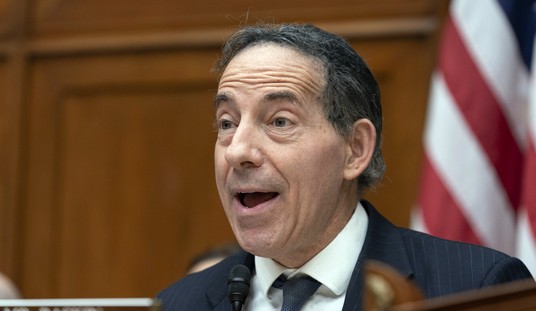


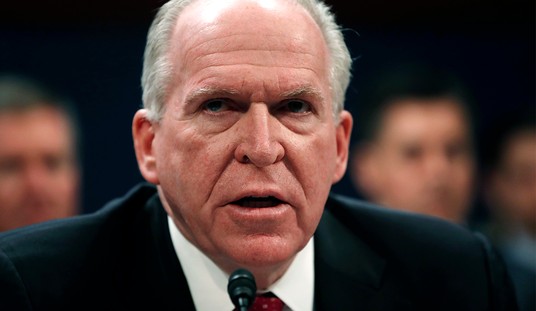






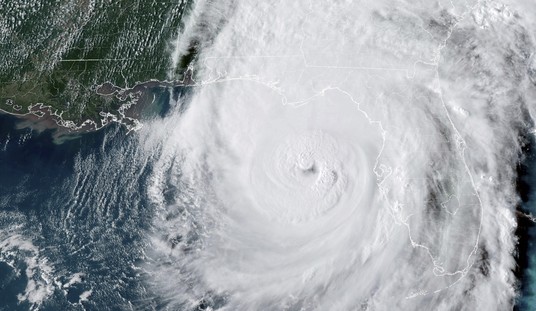
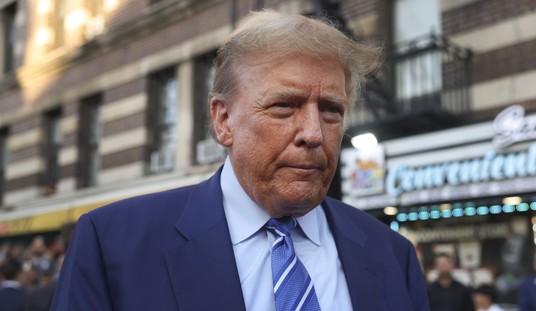
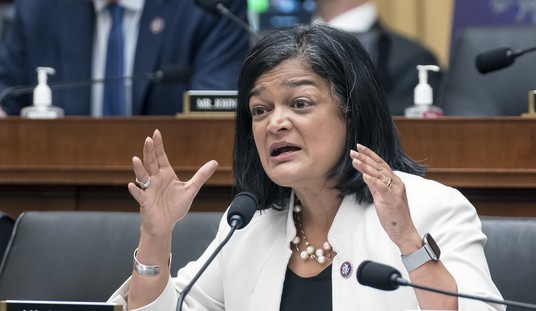
Join the conversation as a VIP Member